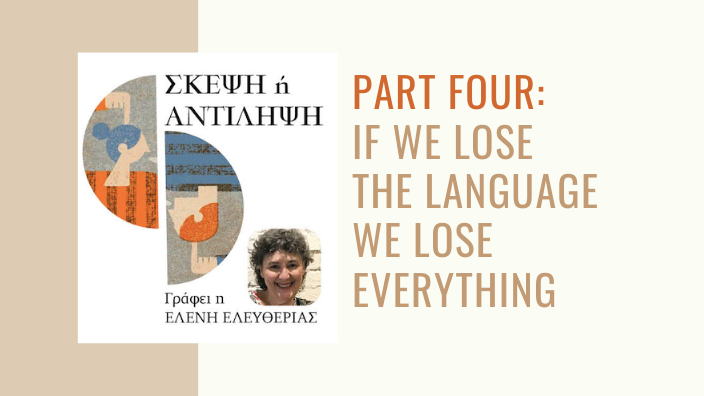By Eleni Elefterias.
(PART 4)
Many of us worry about when children should start to learn Greek.
What if their English skills are not established yet?
What if they can speak Greek quite well as they have had lots of interaction with grandma and grandad who speak fluent Greek but not much English?
One parent wants the child to start Greek school and the other insists that it will slow them down at school There is really no good reason for this attitude. Children are very capable of learning many languages and being bilingual or multilingual is a great asset to have at any age.
If children are exposed to languages from young age neurones, form in their brain, potentially making them smarter and better problem solvers than many other children.
The younger they start to hear other languages the better. Children and even babies recognise very quickly that different adults speak different languages, and they can discern this difference. This is called coding.
They may have one grandmother who speaks to them in Greek and another in Thai, while one parent may talk to them in English and one in Greek. They may mix the languages up at first, but eventually, they will be able to translate for others in the family.
When they start school, their language skills in English may seem slower than the other children; however, their language acquisition is the same if not more. This following analogy with the glasses is a good one. Monolingual children may have a glass full of words by the end of Kindergarten.
Bilingual children may have two glasses half full of two languages. All together they too have a whole glass full of vocabulary. Eventually, they will catch up and exceed the monolingual group.
So when should you teach them the Greek alphabet? Next week I will tell you why you should not bother with the alphabet.
READ MORE: Insight or Perspective: If we lose the language we lose everything (Part Three)
*Eleni Elefterias-Kostakidis is a teacher of Modern Greek and University lecturer.

Read Eleni Elefterias’ column ‘Insight or Perspective’ in Greek, every Saturday in The Greek Herald’s print edition or get your subscription here.

